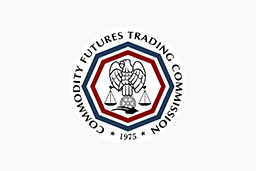The mission of the Commodity Futures Trading Commission (CFTC) is crystal clear: “to promote the integrity, resilience, and vibrancy of the U.S. derivatives markets through sound regulation.” And with recent guidance that, as of this writing, will soon be included in the CTFC’s enforcement manual, the agency has taken another step towards achieving its stated objective.
On September 10, 2020 the CFTC announced the issuance of new, staff-level guidance by the Division of Enforcement that outlines factors to be considered when evaluating corporate compliance programs—those of commission registrants and other market participants—in connection with enforcement matters going forward. The guidance is not only binding, but streamlined as well—just three pages of direction intended “to deter bad behavior and foster a culture of compliance” in futures and options markets.
A Recent History of Enforcement and Transparency
The latest guidance released by the CFTC is reflective of the agency’s focus on its enforcement functions. But this is certainly not the commission’s first foray into corporate compliance. Last May, the CFTC issued guidance to its staff regarding factors to be considered in recommending civil monetary penalties in enforcement actions, including the gravity of any given violation, the existence and effectiveness of existing compliance programs, as well as post-violation conduct. A year prior to that, the commission published its first Enforcement Manual.
Still, the newest guidance is the most direct effort by the CFTC to foster investment in programs that prevent regulatory infractions. And why not? As Chairman Heath P. Tarbert puts it, “The CFTC depends on good corporate citizens, acting through compliance programs—as partners in furthering the integrity and resilience of our markets.”
Compliance Program Considerations
Pursuant to the new guidance, the Division of Enforcement will conduct risk-based analyses, taking into account a variety of different points, such as the specific entity under the microscope, its role in the derivatives market, and the potential market or customer impact of underlying misconduct. In terms any specific compliance program subject to evaluation, the factors to be considered will revolve around an entity’s ability to prevent, detect and remediate the misconduct at issue, as follows.
Prevention
When assessing the adequacy of a compliance program and an organization’s capacity to prevent misconduct, the Division of Enforcement will look closely at that organization’s written policies and procedures, along with the training of its staff; whether it has failed to cure previously identified deficiencies; the adequacy of its resources to prevent infractions; and the structure, oversight, reporting and independence of the compliance function it has in place.
Detection
As set forth in the CFTC guidance, the efficacy of an entity’s ability to detect wrongdoing hinge upon its internal surveillance and monitoring efforts; its internal-reporting system and handling of complaints; and procedures for identifying and evaluating unusual or suspicious activity.
Remediation
When evaluating an organization’s corporate compliance program, enforcement staff will pay special attention to remediation measures the organization has at the ready to assess and address both the misconduct at issue and any deficiencies in the compliance program that may have permitted transgressions to occur. Toward that end, the guidance directs the Division of Enforcement to determine whether the company under review (1) effectively dealt with the impact of misconduct, and (2) appropriately disciplined the responsible individuals.
Beyond the emphasis on these three principles—prevention, detection and remediation—the CFTC’s guidance is intentionally light on specifics about what successful compliance programs should look like. According to McDonald, more detailed guidance would not have been practical, particularly given the breadth of the markets the agency regulates.
The Takeaway
No doubt, the CFTC’s guidance illustrates the premium the agency places upon corporate compliance programs and their positive impact upon the health of derivatives markets. And with the integrity, resilience, and vibrancy of these markets as a benchmark, companies should be sure to develop and cater their compliance programs to be in line with the guideline expectations, proactively investigate potential misconduct, and remediate any instances of wrongdoing in order to have the best outcomes in the event of enforcement actions.
This blog post is not offered, and should not be relied on, as legal advice. You should consult an attorney for advice in specific situations.

